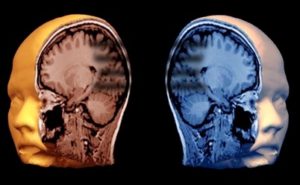About five years ago I put out a special report on “How Affairs Hack Your Brain“. In the report, I mentioned the ’emotional brain’. For the sake of simplicity, you have a thinking brain and an emotional brain. Assuming you have one and not the other leads to many problems.
In dealing with an affair, it’s important considering both of these. It could be that your talks with the cheater are failing due to you attempting access to the wrong brain. You see, the emotional brain is where all the feelings are. The feeling of love, hate, happiness, sadness, etc. The thinking brain is where logic and reason live. When you get upset with your partner, it’s not because they’re being logical, it’s because they’re activating your emotional brain.
Therefore, the goal of a conversation with a cheater should be to access both brains. You want to talk about what happened and why it happened from a thinking-brain perspective. However, you also need to tap into their emotional brain and get them to understand the impact of their actions.
Using interventions to connect with their thinking brain when what’s driving the affair is located in their emotional brain frustrates your efforts. It’s important to use the right tools in connecting with the right part of the brain.
What’s called the emotional brain are the parts that trigger your emotions and basic drives. This part of your brain is strong and can overpower your thinking brain. The longer the cheater gives into this part of their brain, the stronger it grows.
Giving in to your emotional brain increases its strength and speed. When its strength and speed are increased, stopping it or changing it feels like an impossible task.
This is where having others help you come in. There are times when your brain needs the help of other brains in restoring balance and stability.
Obtaining help can be as simple as asking for advice, or involve the other person being strong for you in dealing with disciplining your emotional brain. The emotional brain seeks gratification. It doesn’t consider the consequences or impact of your choices beyond the immediate response.
Having someone walk you through several “what will happen if..” scenarios help your emotional brain slow down and the thinking brain works with it.
This added help you obtain from other brains is referred to as co-regulation. That other brain helps you start regulating yours. There are times you need the energy, insight and thinking of another brain in helping you make it past obstacles.
There’s probably been times a coach asked you “Have you tried it this way?” When you slowed down, you saw that there are other options. The coach gave you ideas and thoughts that wouldn’t have come to you when you were in the middle of it.
A therapist or friend can be the same way. In a calmer setting, they help give you different perspectives and ways of looking at things. This is what’s helpful in co-regulation. It’s someone being there with
This is co-regulation in action. You need that in changing the patterns in your thinking and the thinking of the cheater.
Changing patterns is essential in getting unstuck from affair trauma. Your thinking and emotions can move on with help.
You can find that kind of help in the video “Overcoming Affair Trauma“. Just click, download, and start making changes rather than re-living the same old pain and torturous thoughts another day.
Order your copy today.
Keeping It Real,
Jeff















